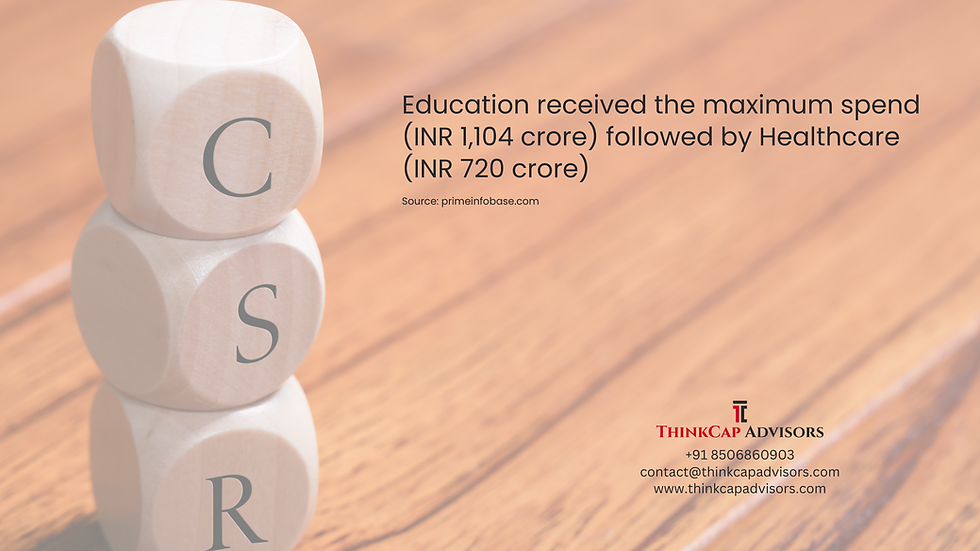The Impact of CSR on the Indian Sports Ecosystem
- rahul359
- Apr 9, 2023
- 3 min read
Updated: Sep 26, 2024

In a country like India, where cricket is practiced as a religion and has sentiments deeply embedded into the population’s heart and soul, we still see an unfathomable gap and neglect in our Sports infrastructure, other than cricket.
There are a number of activities that qualify for CSR under the Companies Act, including health and sanitation, education and skill development, rural development, gender equality, and sports development. In the initial years of this mandate, many companies didn’t know much about it, so they just wrote checks to the PM Fund, thereby eliminating lengthy audits.
Currently, training (including international training of Indian athletes) to promote rural sports, nationally recognized sports, paralympic and Olympic sports is permitted under the CSR regulations.
According to a KPMG report, the 100 largest listed Indian-origin companies by market capitalization spent Rs 123 crore on sports under CSR in 2018-19. Although these may seem like huge numbers, studies and reports show a steep decline in CSR spending on Sports.
Indian athletes have come forward many times to talk in this light and have pleaded for support. The lack of financial and structural encouragement makes it very difficult to sustain and remain devoted to winning medals for the country.

Shot-Putter Manpreet Kaur, gold medalist in both Asian Championships and South Asian Games had made several pleas via media to the private sector to sponsor her and many other budding sportsmen and women.
In 2016, Luger Shiva Keshavan, a five-time Olympian announced his withdrawal from Luge World Championships and the World Cup Circuit because of “lack of funds”. Even with a silver medal at Asian Luge Championship in 2015 and two golds in the Asia Cup, he had not received any support to keep going.
To help his plight, the director of Mallcom India, took the step to sponsor him as a CSR opportunity, which helped Keshavan win gold in the 2016 and 2017 Asian Luge Championships. He also was recognized as the First Indian Luger to qualify for the Winter Olympic Games.
A Public appeal to Corporate India and leading Public Sector Units (PSU) was made by the Indian Minister of Youth Affairs and Sports, Kiren Rijiju, requesting to help strengthen the sport ecosystem of the country by channelling their CSR funds towards National Sports Development Fund.
Indian corporates have yet to unravel the plethora of opportunities they could harness by investing in CSR for Sports Development. With huge sentiments towards sports and sports personnel companies can gain much greater visibility and publicity from it.
CSR experts have always recognized the potential of investing in Sports. The media chases a sports story and sells it as a human-interest story. The budget is comparatively small and yet the impact achieved is optimum making a company look like angels of sport and human development.
Sport promotes tolerance and respect and also is a platform for empowering women, youngsters, and communities that are lost in the sea, and hence there also is a push and call from the United Nations to allocate more CSR funds towards sports.
Indian Prime Minister Narendra Modi is also very articulate about how he wants the country to aggressively contribute towards building a nation through health, wellness, sports, and fitness.
As a CSR consulting firm, we believe If the corporate sector heeds to these appeals and acknowledges this gold mine opportunity, the gains of necessary financial and logistical support to Indian athletes and infrastructure could be a major stride towards India becoming a sporting superpower




Corporate Social Responsibility has become a driving force in shaping the Indian sports ecosystem, from grassroots initiatives to professional leagues. Just as CSR builds trust and long-term engagement, the One Win mobile app provides users with a reliable way to stay connected to sports and entertainment directly on their devices.